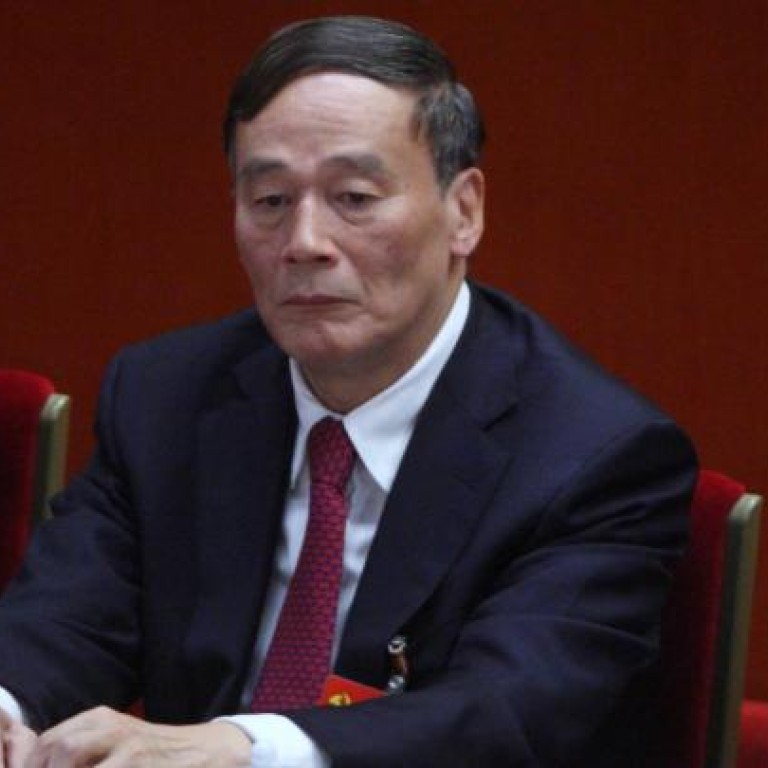
Vice-Premier Wang Qishan to head anti-corruption agency
Wang Qishan is given seat on top disciplinary body, setting him up to fill the seventh - and possibly last - spot on the Standing Committee
Vice-Premier Wang Qishan was given a seat on the Communist Party's top disciplinary body yesterday, clearing the way for him to lead the anti-graft agency and take a seat on the Politburo's powerful Standing Committee.
As Wang was elevated to the Central Commission for Discipline Inspection (CCDI), a move anticipated previously by the , long-time CCDI member Ma Wen was left off the agency list approved by delegates at the end of the 18th party congress.
Given his position, Wang will almost certainly take control of the CCDI. The move sets up his rise to the No7 - and potentially final - spot on the new Politburo Standing Committee, which will be announced today.
Wang, who has a strong background in economic issues, had previously been seen as a shoo-in to be the country's economic tsar. Analysts attributed his repositioning largely to concerns that he could overshadow incoming premier Li Keqiang , outgoing President Hu Jintao's closest ally on the Standing Committee.
Those close to Wang, 64, have said he preferred a job with full authority over a portfolio, rather than a higher position such as vice-premier which might require him to defer to Li more often.
Professor Wang Yukai of the Chinese Academy of Governance said Wang would face many challenges adjusting to the delicate post of disciplinary chief.
"Wang is widely recognised for his successful dealings on financial issues," Wang Yukai said. "He has a strong personality, and is a vigorous and resolute person. It would be very tough for someone with such characteristics in the party disciplinary job."
Meanwhile, Ma's removal from the CCDI was a surprise. She has been member of the agency since 1997 and, having led a series of investigations of corrupt officials, was seen as one of Premier Wen Jiabao's most trusted graft-busters.
At 64, she is still a relatively young member of the party leadership and had been seen as a top female contender for the male-dominated Politburo.
"Considering she was even once rumoured to become the secretary of the powerful General Office of the party's Central Committee, this is very strange," said Chen Ziming , a Beijing-based political commentator.
Long seen as a reformer and problem solver, Wang is the former president of China Construction Bank and was the head of China International Capital in the mid-1990s.
He was tapped to oversee the bankruptcy of a state-owned investment firm in 1998, when he was the vice-governor of Guangdong. In 2003, he was appointed mayor of Beijing, where his proactive response to the Sars outbreak earned him the nickname "fire brigade captain".
Wang's absence from economic discussions might be seen as a misuse of talent, but experts said his problem-solving skills could also prove useful as the party tried to bolster its disciplinary apparatus after the scandal surrounding former Chongqing party boss Bo Xilai .
"Wang is a tough man," said Gu Su , a law professor at Nanjing University. "He may want to make some noise in the new post to solidify his position."
